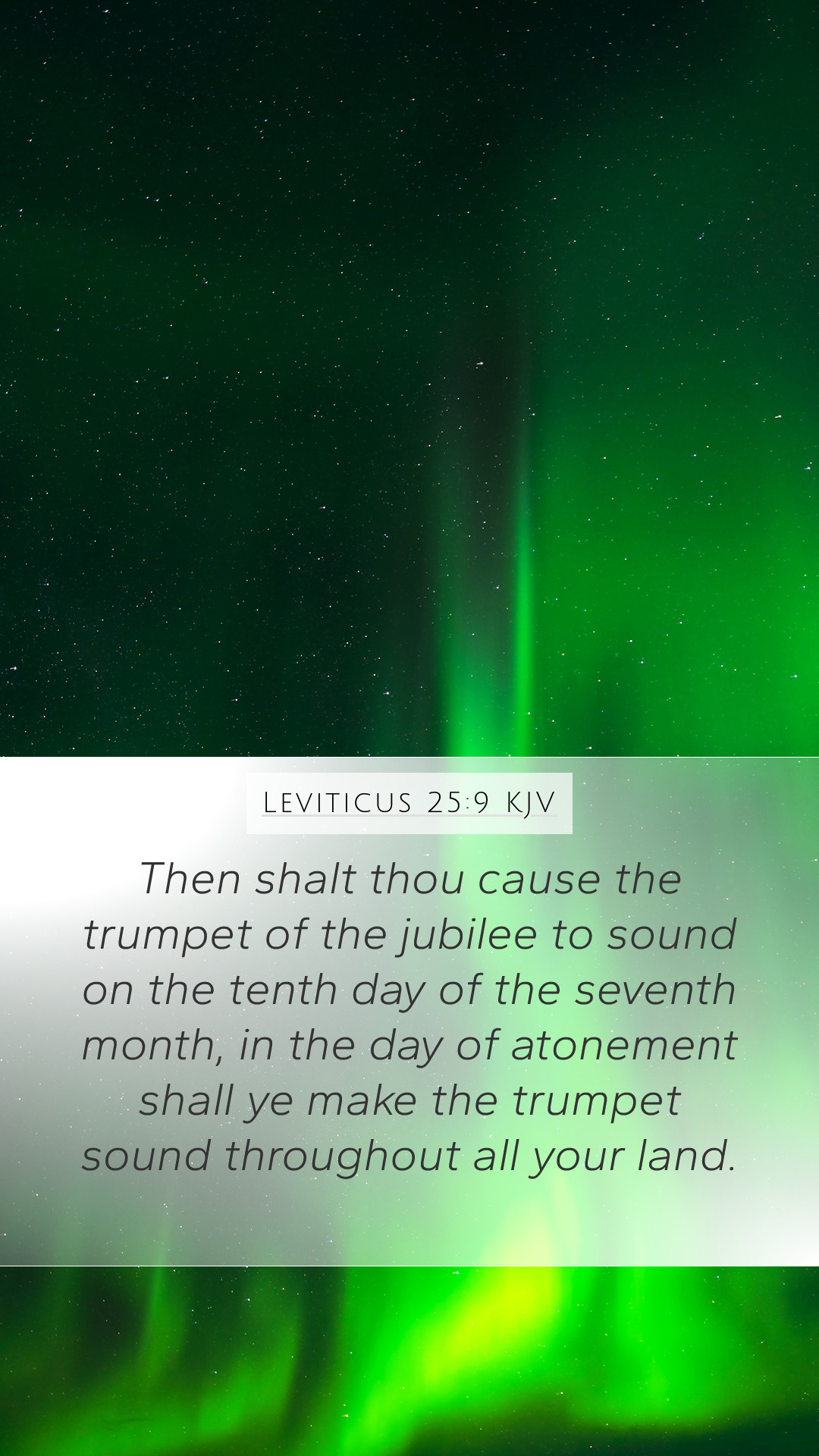Understanding Leviticus 25:9
The verse Leviticus 25:9 states: "Then shalt thou cause the trumpet of the jubilee to sound on the tenth day of the seventh month, in the day of atonement shall ye make the trumpet sound throughout all your land." This verse is pivotal in understanding the concept of the Jubilee year, which emphasizes renewal, restoration, and God's providence. Below is a detailed exploration of its meaning provided through public domain commentaries from notable scholars.
Bible Verse Explanations
-
Matthew Henry's Commentary:
Henry denotes the significance of the Jubilee as a time for liberation and restitution. The sounding of the trumpet symbolizes a profound call for people to return to their original possessions and to freedom. The timing, coinciding with the Day of Atonement, indicates a divine mandate for reconciliation not just with God but also with one another. The year of Jubilee, marked by this trumpet, serves as a reminder of God's mercy and the restoration of social justice.
-
Albert Barnes' Notes:
Barnes emphasizes that the trumpet’s signal on this day denotes a universal proclamation. It represents not just a national holiday but spiritual significance inviting individuals to reflect on their social responsibilities and to embrace the chance for renewal. This trumpet call is a reminder of God’s provision and the necessity for community solidarity. The occasion was for re-affirming one’s loyalty to God’s commandments and reinforcing communal relations.
-
Adam Clarke's Commentary:
Clarke expands upon the trumpet's role, explaining that it was not merely a signal for social gatherings but a divine instillation of hope. He notes that the trumpet's sound coincided with the Day of Atonement, implying a double importance of forgiveness and restoration for Israel both individually and nationally. The verse calls people to engage actively in the reparative process, reaffirming their need for God’s grace and mercy.
Scripture Analysis
This passage encapsulates a deeper understanding of social justice, mercy, and divine order in terms of ownership and restitution. In the broader context of the Pentateuch, it showcases how God’s laws aim for community welfare and holiness.
Key Themes
- Restoration: The act of returning to one's land symbolizes God’s restorative nature.
- Community: The verses emphasize the importance of communal relationships and responsibilities.
- Divine Timing: The timing of the trumpet sound aligns with significant spiritual observances, underlining God’s sovereignty.
Cross References
- Isaiah 61:1: Proclamation of liberty to the captives.
- Numbers 36:4: Importance of possession and inheritance.
- Deuteronomy 15:1-2: The practice of releasing debts and restoring relationships every seventh year.
Applying Bible Verses to Daily Life
Understanding the significance of Leviticus 25:9 can significantly impact how individuals approach issues of justice, community, and reconciliation in modern contexts. Practically, the principles of Jubilee can encourage forgiveness, generosity, and acknowledgment of community responsibilities in daily interactions.
Conclusion
In summary, Leviticus 25:9 serves as a powerful reminder of God's intention for His people to live in harmony, reflecting His mercy and justice. By comprehending this scripture's implications through detailed biblical exegesis and commentary, individuals can find profound insights into their spiritual lives and community engagements.


